
The Casa Rosada, literally the Pink House, is the president of the Argentine Republic's official workplace, located in Buenos Aires. The palatial mansion is known officially as Casa de Gobierno. Normally, the president lives at the Quinta de Olivos, the president of Argentina's official residence, located in Olivos, Greater Buenos Aires. The characteristic color of the Casa Rosada is baby pink, and it is considered one of the most emblematic buildings in Buenos Aires. The building also houses a museum, which contains objects relating to former presidents of Argentina. It has been declared a National Historic Monument of Argentina.

The National Historical Museum is a museum located in Buenos Aires, Argentina, and is a museum dedicated to the history of Argentina, exhibiting objects relating to the May Revolution and the Argentine War of Independence.

The Buenos Aires Botanical Garden is a botanical garden located in the Palermo neighborhood of Buenos Aires in Argentina. The garden is triangular in shape, and is bounded by Santa Fe Avenue, Las Heras Avenue and República Árabe Siria Street.
There are many landmarks in Buenos Aires, Argentina, some of which are of considerable historical or artistic interest.
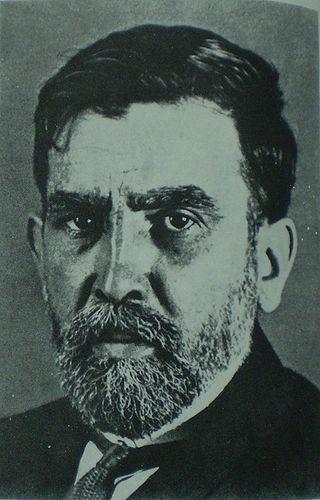
Rogelio Yrurtia was a renowned Argentine sculptor of the Realist school.

Martín Malharro (1865–1911) was an Argentine painter who introduced Impressionism in the country in the early 20th century.

The Buenos Aires Museum of Modern Art, known locally as the Museo de Arte Moderno de Buenos Aires (MAMBA), is a modern art museum located in the San Telmo district of Buenos Aires, Argentina.

The Palace of Running Waters is an architecturally significant water pumping station in Buenos Aires, Argentina and the former headquarters of state-owned company Obras Sanitarias de la Nación. It is currently administered by Agua y Saneamientos Argentinos (AySA).

The Ángel María de Rosa Municipal Museum of Art (MUMA) is an art museum in Junín, a city in the north of Buenos Aires Province, Argentina.

Pío Collivadino was an Argentine painter of the Post-Impressionist school.

The Eduardo Sívori Museum of Plastic Arts is a municipal art museum in Buenos Aires, Argentina. It was named after painter Eduardo Sívori and was inaugurated in 1938.
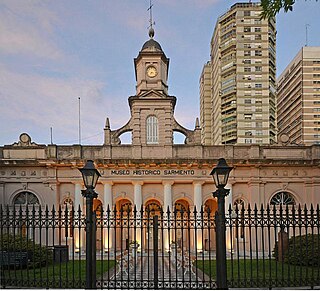
The Sarmiento History Museum, located in the Buenos Aires neighborhood of Belgrano, is a museum dedicated to Argentine history, and in particular to the Generation of '80 and the life of President Domingo Faustino Sarmiento, a writer and political figure who was President of Argentina between 1868 and 1874.
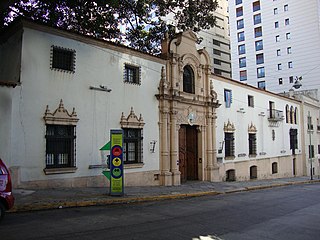
The Museo de Arte Hispanoamericano Isaac Fernández Blanco is a museum of art located in the Retiro ward of Buenos Aires, Argentina.
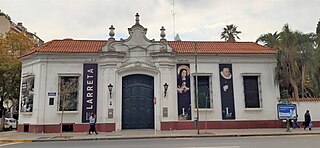
The Museo de Arte Español Enrique Larreta is a museum of Spanish art located in the Belgrano ward of Buenos Aires, Argentina.

The Villar Residence, mistakenly called Haedo for many years, is a 19th-century building in the Retiro neighborhood of Buenos Aires, Argentina. It is located on Avenida Santa Fe, to the southwest of the Torre Monumental and across the street from Plaza San Martín, in close proximity to the Plaza Hotel. It was built as a residence for colonel Reinaldo Villar (1830-1908), a wealthy landowner from Entre Ríos province, and his family.

The Palace of Justice of the Argentine Nation, is a large building complex located in Buenos Aires, Argentina. It is the seat of the Supreme Court and other lower courts.

Rogelio Polesello was an Argentine painter, muralist and sculptor. He was best known for making Op art known in Latin America. He won two Konex Awards; one in 1982 and another in 2012. He was born in Buenos Aires.

Julia Wernicke was an Argentine painter and engraver. She is known as the first animalist painter from Argentina and incorporated exotic animals into her paintings. She paved the way for female artists in Argentina through many firsts, especially within the discipline of engraving. Wernicke was one of the first women to have an individual exhibition of works in Buenos Aires, in 1897; and the first person to have an individual exhibition of engraved etchings in Argentina, in 1909.
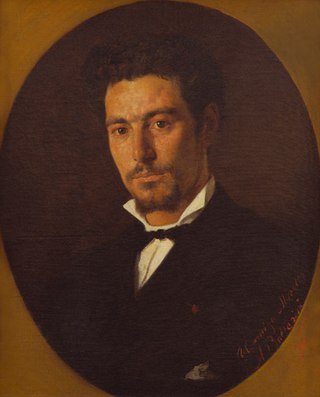
Lucio Correa Morales was one of the first major Argentine sculptors.
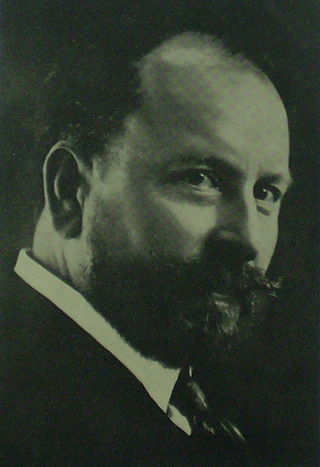
Carlos Pablo Ripamonte was an Argentine painter.
























